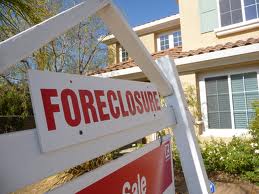 If you look at just about any bankruptcy law firm’s web site, including mine, you will see some language about how bankruptcy provides a way for a debtor to stop a foreclosure sale. Bankruptcy lawyers provide this information to our potential clients because it is such a powerful reason for filing a Chapter 13 case. Almost every day I meet with someone who needs to stop a foreclosure sale of their home or I work on a case in which we did just that. After a while bankruptcy attorneys get so ingrained with the idea that they must stop foreclosure sales that we may forget to ask ourselves whether doing so is really in our client’s best interest.
If you look at just about any bankruptcy law firm’s web site, including mine, you will see some language about how bankruptcy provides a way for a debtor to stop a foreclosure sale. Bankruptcy lawyers provide this information to our potential clients because it is such a powerful reason for filing a Chapter 13 case. Almost every day I meet with someone who needs to stop a foreclosure sale of their home or I work on a case in which we did just that. After a while bankruptcy attorneys get so ingrained with the idea that they must stop foreclosure sales that we may forget to ask ourselves whether doing so is really in our client’s best interest.
Foreclosure is basically the transfer of real property from one party to another. In some instances, foreclosure may not be such a bad thing. If the property is being foreclosed because the debtor cannot afford the mortgage payments, then losing the property may be in the debtor’s best interest long term. First, I will usually consider whether or not the debtor has any equity in the house. If they could sell the home and have money left over after paying off the note and costs of the sale then it may be a good idea to stop the foreclosure sale in order to allow my client an opportunity to put it on the market.
Second, I consider what caused my client to fall behind on the mortgage payments in the first place. If they had a temporary decrease in monthly income but moving forward they will be able to make the payments then Chapter 13 bankruptcy may be a good option. However, if they are behind on their payments simply because they don’t earn enough money and there is no reason to believe that their income will increase or their expenses will decrease then filing Chapter 13 bankruptcy to stop the foreclosure may not be in their best interest long term. Finally, I consider what will happen if the property is foreclosed. Will the debtor be liable for a mortgage deficiency, and if so, based upon my client’s situation is a deficiency judgment even collectable.